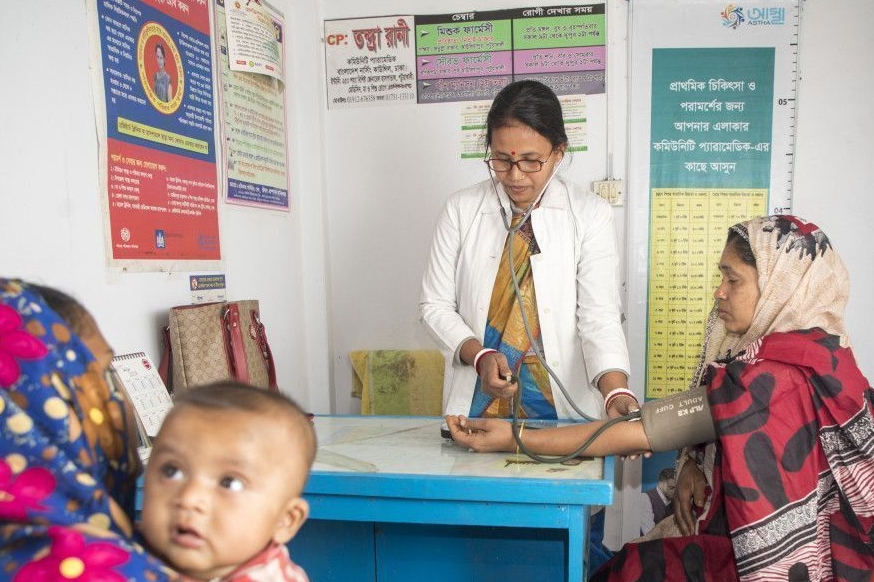 Health care is a crucial aspect of any society, playing a fundamental role in ensuring the well-being of its people. In Bangladesh, a densely populated country located in South Asia, the health care system faces a unique set of challenges. This article aims to delve into the current status of health care in Bangladesh, highlighting the obstacles faced by the population and exploring the potential opportunities for improving the system.
Health care is a crucial aspect of any society, playing a fundamental role in ensuring the well-being of its people. In Bangladesh, a densely populated country located in South Asia, the health care system faces a unique set of challenges. This article aims to delve into the current status of health care in Bangladesh, highlighting the obstacles faced by the population and exploring the potential opportunities for improving the system.
Burden of Disease – Addressing Health Challenges
Bangladesh faces many health challenges that negatively impact the overall well-being of its people. With a population of more than 160 million, the disease burden is significant. Here are some key issues that contribute to the complexity of the healthcare environment.
High prevalence of infectious diseases
Bangladesh suffers from a high burden of infectious diseases such as tuberculosis, malaria, and dengue fever. These infectious diseases pose a serious threat to public health and require effective prevention and control strategies. Efforts to increase vaccination rates and improve access to clean water and sanitation are essential to combating these diseases.
Anxiety about the health of mother and child
Maternal and child health is an important area that requires attention. Although progress has been made over the years, Bangladesh still faces challenges in reducing maternal and child mortality. Lack of access to quality prenatal care, skilled birth attendants, and postnatal services contributes to the high number of preventable deaths. Strengthening health infrastructure and providing comprehensive maternal and child health services can significantly improve outcomes.
Non-communicable diseases are on the rise
Non-communicable diseases (NCDs) such as cardiovascular diseases, diabetes, and cancer are on the rise in Bangladesh. Urbanization, physical inactivity, and dietary changes are contributing to the rise in non-communicable diseases. Raising awareness about healthy lifestyles, early detection, and access to affordable treatment options is critical to addressing this growing health burden.
Mental health and underappreciated concern
Mental health is often neglected in Bangladesh, despite its impact on overall well-being. The stigma around mental illness, limited mental health services, and a shortage of mental health professionals are major challenges, and increasing awareness and investment in mental health services is critical to providing the right care to those who need it. is an important step.
The battle for access to health care
Ensuring equal access to healthcare remains a fundamental challenge in Bangladesh. Here are the main factors that contribute to accessibility issues.
Unequal distribution of medical facilities
Health facilities in Bangladesh are mainly concentrated in urban areas, with limited access for people in rural areas. Rural areas lack hospitals, clinics, and trained medical professionals, further exacerbating healthcare disparities. To fill this gap, it is important to expand and strengthen health infrastructure in rural areas.
affordability hurdle
The cost of healthcare services is often a significant barrier, especially for low-income individuals and households, and out-of-pocket healthcare costs can push families into poverty. Initiatives such as government social health protection programs, community-based health insurance schemes, and the provision of subsidized health services make health care more affordable for all.
limited health literacy
Lack of health literacy among the population also makes access to quality healthcare more difficult. Many people, especially those from marginalized communities, lack sufficient knowledge about health problems, preventive measures, and available health services. Investing in health education and community health workforce development enables individuals to make informed decisions about their health.
How to improve healthcare in Bangladesh
Although challenges remain, Bangladesh has made significant progress in the health sector. Here’s how we can further improve our healthcare system. 
Strengthening primary health care
A focus on strong primary health care can lay the foundation for an efficient and comprehensive health system. Bangladesh can improve the overall health of its population by investing in community health centers, training more primary care providers, and implementing preventive health programs.
Introducing technology and telemedicine
Advances in technology, especially in the field of telemedicine, have the potential to revolutionize healthcare delivery in Bangladesh. Telemedicine platforms can connect patients and specialists in remote locations, providing access to high-quality care without travel. Integrating technology into health systems increases efficiency and improves health outcomes. collaboration and partnership
 Collaboration between local health authorities, government agencies, and international organizations facilitates knowledge sharing, resource mobilization, and capacity building. By collaborating with global health organizations and leveraging international expertise, we can address specific health challenges and foster health innovation.
Collaboration between local health authorities, government agencies, and international organizations facilitates knowledge sharing, resource mobilization, and capacity building. By collaborating with global health organizations and leveraging international expertise, we can address specific health challenges and foster health innovation.
Healthcare status of people in Bangladesh
The healthcare delivery landscape in Bangladesh remains a complex issue characterized by a variety of challenges and opportunities. By tackling the burden of disease, improving access to health care, and seeking innovative solutions, Bangladesh can strive towards a more comprehensive and effective health system. The joint efforts of governments, communities, and stakeholders are essential to ensure population well-being and achieve better health outcomes for all.
External link:
[World Health Organization – Bangladesh] (https://www.who.int/countries/bgd/en/)
References:
- Bangladesh Demographic and Health Survey 2017-2018
- 2019 Global Burden of Disease Survey











